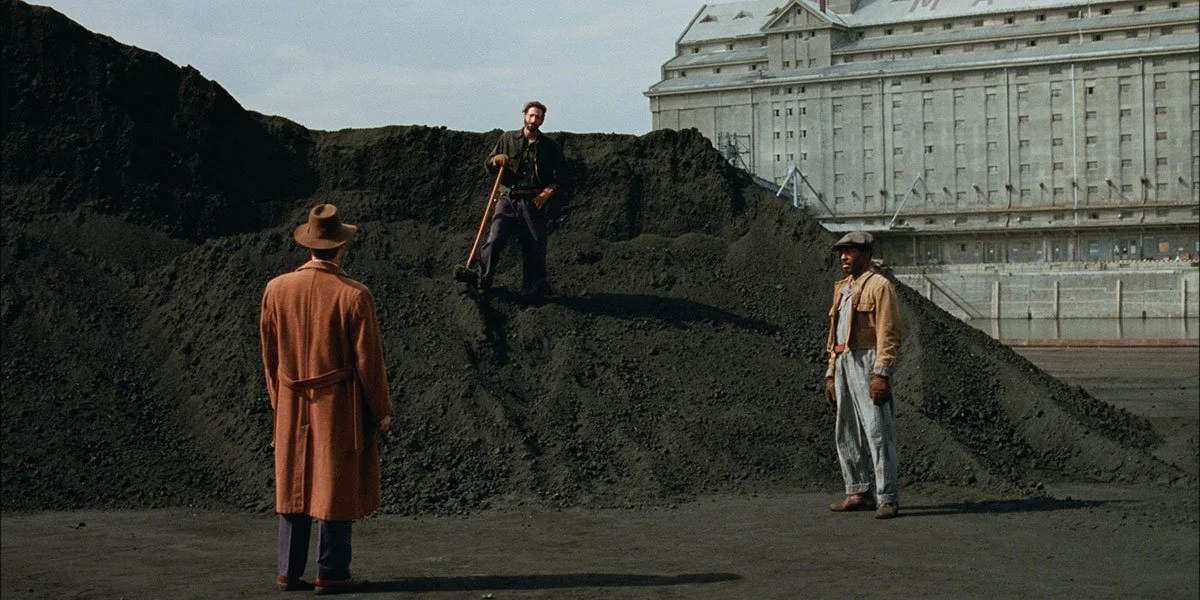Movie Review : The Brutalist (2024)
When marketers explain the concept of "brand" to normies, they like to get all esoteric and conceptual. "A brand is a promise" they say and they're not wrong. I watch A24 movies because I know it's going to be original, intelligent and artsy to some degree. It's the promise they constantly live up to and they have the strudiest brand in independent cinema. That's why I knew that I'd enjoy The Brutalist and its INSANE 215 minutes runtime before I'd see it, but I enjoyed it less than I thought I would. But it was artsy and smart.
It's exactly what you think it is: it's too long, self-serious and byzantine to be great, but it's also why it's any good to begin with.
The Brutalist tells the story of Laszlo Toth (Adrian Brody), an Hungarian architect who was separated from his wife and imprisoned in a concentration camp during WWII. He makes it to America where he is discovered by an industrialist named Harrison Van Buren (Guy Pearce) and begins the construction of a community center under his patronage. If you've ever been around a construction site, you know that everything is fine and dandy until an accident happens and money becomes a throbbing penis of an issue.
The Part That's About Beauty
This is not a complicated movie. It’s long and winding, but it's a pretty straightforward narrative. An important idea carried throughout is man's relationship to beauty. As Laszlo immigrates to the United States, he carries his ideas of beauty with him and shares it on his first architectural job with his cousin Attila (Alessandro Nivola). It first infuriates his unsuspecting client Van Buren, but when he finds out that Laszlo's creation is groundbreaking and desirable by his peers, he suddenly wants to own it.
Even if he isn't a dirty capitalist, Laszlo wants to own the beauty that inhabits him too and doesn't let anyone take any creative decision for the project, which eventually leads to (hypothetical) loss of lives, lawsuits and the temporary abandonment of the building. In The Brutalist, beauty is an evanescent muse that keeps slipping through the fingers of angry, controlling men. It’s something that flows to its own rhythm and never truly appears until the idea of aesthetic ownership has truly been let go of.
I mean beauty isn’t the main theme of The Brutalist. It's primarily a movie about WWII immigrant experience and the power relationship newcomers entertained with American wealth, but it has been explained a hundred times already. For about two thirds of the movie, I thought The Brutalist was about how wealth could benefit art in order to create a powerful culture like it did in the renaissance and whatnot, but it turned out not to be about that at all. It's a Platonic pursuit, but I still think it would be a good idea.
The Part That's About Prisons
So yeah, The Brutalist is a very detailed, nuanced movie where symbolism and allegories are important. My favourite being imprisonment. Laszlo Toth escaped imprisonment from the nazis in WWII, but prisons never really left him. He walks into a golden cage where Harrison Van Buren is the warden, but also picks up a heroin addiction that keeps him trapped by his trauma from the war. Unwittingly, Laszlo keeps himself in a place of suffering and in power relationships where he can’t win.
There's a scene in the second part of the movie where Laszlo introduces Harrison Van Buren to "his marble guy" (Salvatore Sansone) in Italy that's completely abstract and unhinged where I thought the movie would shift into a different gear and become this weirdo, A24 exploration of structural beauty, as I was talking about earlier, the movie so, SO doesn’t take that route. In a way, managed to surprise me, but it did by choosing a much more conventional final third and I was disappointed by that surprise.
*
Co-Written and directed by Brady Corbet, who offered us the intriguing and promising Vox Lux in 2018, is an ambitious, Oscar-coded film that manages to never delve into complete obviousness even if it ends up having a pretty standard morality in the end. I liked it conceptually and intellectually, but I didn't love it the way I thought I would. I thought it was as good as a standard, classic moviegoing experience could get, but I don't go to movies to watch standard, classic movies anymore.
I do think (and wish) it’ll win all the Oscars, though.
7.7/10
* Follow me on Instagram to keep up with new posts *







